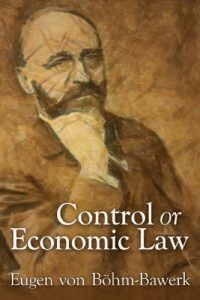This is the second book in the series of Böhm-Bawerk translations by Scottish economist William Smart, originally published in 1891. This elegant translation has been out of print for more than half a century.
The Positive Theory of Capital showcases Böhm-Bawerk's legendary method of systematic thinking and clear exposition, presenting what is called today the time-preference theory of interest: that the passage of time and the preference for the present over the future are the necessary and sufficient conditions for the emergence of interest. Capital is the corollary to that notion, since all production takes place over time.
The Positive Theory of Capital begins with full front matter by Smart himself. Seven sections follow: The Nature and Conception of Capital, Capital as an Instrument of Production, Value, Price, Present and Future, The Source of Interest, The Rate of Interest, and finally a rich and detailed index.
To search for Mises Institute titles, enter a keyword and LvMI (short for Ludwig von Mises Institute); e.g., Depression LvMI
The Positive Theory of Capital showcases Böhm-Bawerk's legendary method of systematic thinking and clear exposition, presenting what is called today the time-preference theory of interest: that the passage of time and the preference for the present over the future are the necessary and sufficient conditions for the emergence of interest. Capital is the corollary to that notion, since all production takes place over time.
The Positive Theory of Capital begins with full front matter by Smart himself. Seven sections follow: The Nature and Conception of Capital, Capital as an Instrument of Production, Value, Price, Present and Future, The Source of Interest, The Rate of Interest, and finally a rich and detailed index.
To search for Mises Institute titles, enter a keyword and LvMI (short for Ludwig von Mises Institute); e.g., Depression LvMI








